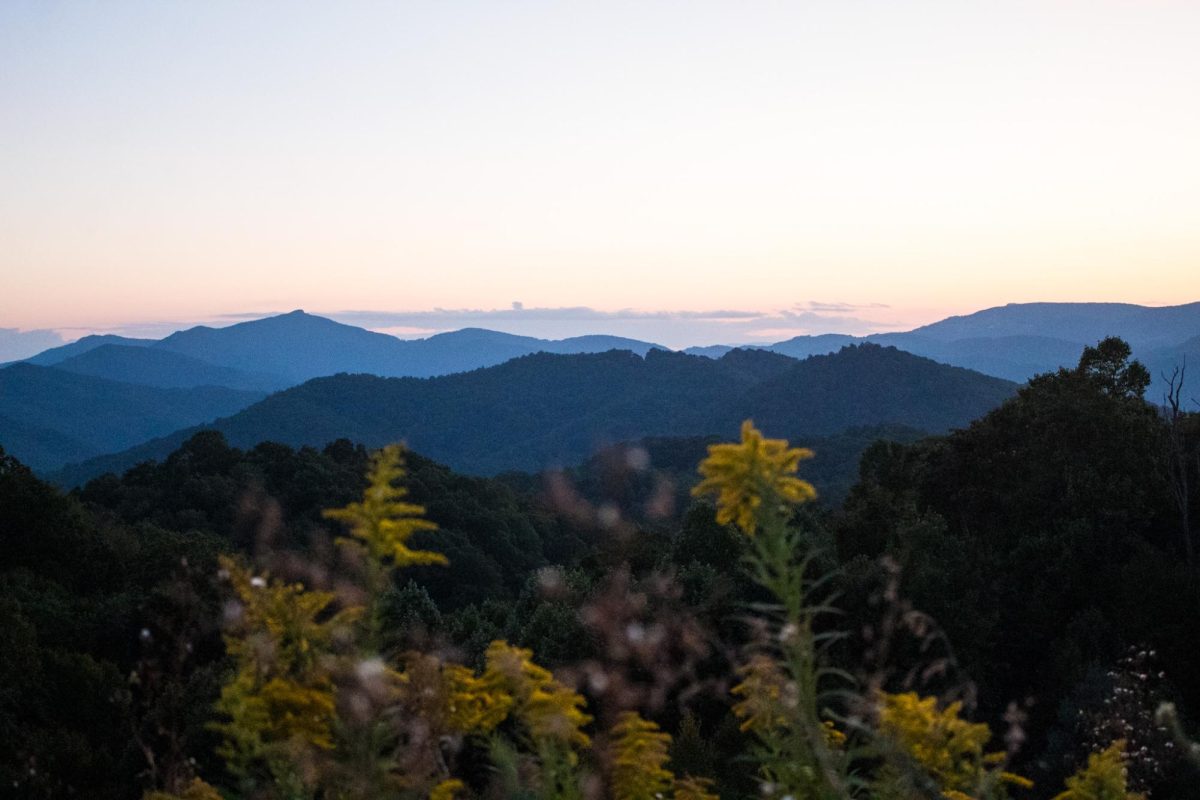App State has taken its third consecutive victory in the annual BioBlitz competition, where students and faculty compete to highlight their campus’s biodiversity, marking it as the most biodiverse campus in North Carolina.
Annkatrin Rose, an App State professor in the department of biology, said students participating in the 2023 BioBlitz competition were able to record just over one thousand different species of life present on campus, beating out both UNC Greensboro and UNC Wilmington in terms of overall biodiversity.
“The BioBlitz competition encourages students to stop and look around, and find species of living things that are right there every day and that they might not have noticed before,” wrote Marta Toran, a professor and lecturer in the Department of Geological and Environmental Sciences at App State and BioBlitz contributor.
App State and its community have won the two previous BioBlitz competitions they participated in.
A BioBlitz is a competition in which people come together to find and record as many different species of organisms as possible within a specific area, uploading their results to a collective page on the iNaturalist website..
BioBlitz features competitors from all over the world, but App State mainly competes against two other schools in the North Carolina region; those schools being UNC Greensboro and UNC Wilmington.
While UNC Wilmington did record more observations and have more total observers compared to App State, they ended up recording less overall species, recording 915 species total compared to App State’s 1,043.
“We have recruited participants for our BioBlitz projects from active iNaturalist users posting observations in the Boone area, as well as classes through either field trips or offering extra credit for participating students,” Rose wrote. “It’s a very fun and engaging activity, so word-of-mouth between students has probably gained us additional participants.”
Rose and Toran wrote that they enjoy using out-of-the-box tactics to find biodiversity on campus, such as “using a species checklist to find species that have been seen in the area in the past, making observations at night so you catch the nocturnal animals, and looking around the corners of window sills for spiders and insects caught in their webs.”
Additionally, Rose and Toran have attributed much of the university’s success in past BioBlitz competitions to the ease of access to iNaturalist, the website used for the BioBlitz competitions.
“Anyone can participate by posting observations on iNaturalist. You don’t even have to be a student or employee of the university,” Toran wrote. “The rules for inclusion in the BioBlitz are that observations have to be of wild organisms made during the time frame of Sep. 25 through Oct. 1, 2023, and on App State properties.”
The large amount of volunteer-submitted data for the BioBlitz competition from App State students and other local residents has been both a point of surprise and pride for Rose and Toran. It’s a trend they hope continues to grow as time goes on.
“I have been thrilled by the number of students who have participated. So far, our BioBlitz events have engaged over 250 observers, making well over 7,000 observations of over 1,200 species at Appalachian State University,” Rose wrote. “That’s an awesome number. When we started, we set a goal of 200 species not knowing what to expect and we crushed it already on the very first day of our first BioBlitz.”
With App State maintaining its status as the North Carolina BioBlitz champion, these results prove the dedication to biodiversity present among App State students and faculty.


